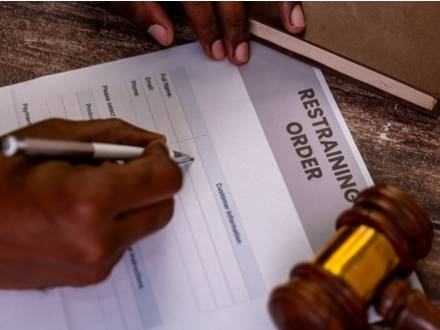Recent Blog Posts
Common Provisions to Include in a Parenting Plan
 A parenting plan is a vital document in a child custody case, outlining the rights and responsibilities of all parties. You may already be familiar with the division of parenting time and decision-making authority (sometimes called "physical custody" and "legal custody"), but a parenting plan can go into much more detail about how parents work together in a child’s upbringing.
A parenting plan is a vital document in a child custody case, outlining the rights and responsibilities of all parties. You may already be familiar with the division of parenting time and decision-making authority (sometimes called "physical custody" and "legal custody"), but a parenting plan can go into much more detail about how parents work together in a child’s upbringing.
If you need help drafting a parenting plan, a St. Charles, IL family law attorney can provide you with qualified legal advice. At Shaw Sanders, P.C., we have a proven track record of success representing clients in a wide range of difficult family law cases, from contested divorces to emotional child custody disputes.
Resolving Disputes Through a Parenting Plan
Disagreements between parents are normal and sometimes to be expected. For instance, you and your co-parent might disagree about where to send your child to school, or whether or not your child should participate in certain extracurricular activities. Depending on who has decision-making responsibility, one parent may be able to override the other, but in some cases, both parents may have equal say, leading to a deadlock.
What Divorce Looks Like for Older Couples
 A divorce between spouses over age 50 – commonly referred to as "gray divorces" – often invites unique challenges. Depending on the length of the marriage, it can come as a major change to the status quo for the whole family. If you need help navigating a gray divorce, you can get legal advice and strong representation from a Kane County, IL divorce attorney.
A divorce between spouses over age 50 – commonly referred to as "gray divorces" – often invites unique challenges. Depending on the length of the marriage, it can come as a major change to the status quo for the whole family. If you need help navigating a gray divorce, you can get legal advice and strong representation from a Kane County, IL divorce attorney.
An experienced family law firm can help you protect what you treasure most in your divorce. At Shaw Sanders, P.C., our attorneys have decades of experience, so you can trust us to provide you with effective counsel based on our deep understanding of the law.
Divorcing With Adult Children
When you divorce with children over age 18, you have no obligation to make arrangements for child custody, since the children are considered to be independent at the age of majority. Some couples delay divorce for this reason, rather than going through the stress of working out an agreement for parenting time and decision-making responsibility.
When Are Financial Experts Needed in a Divorce?
 In your divorce, protecting your finances may be one of your biggest priorities, especially if you have a large marital estate that needs to be divided. Figuring out what you are entitled to and negotiating with your spouse for assets can be overwhelming, and sometimes outside help is needed. Financial experts like forensic accountants can play an important role in your divorce, making sure everything is accounted for.
In your divorce, protecting your finances may be one of your biggest priorities, especially if you have a large marital estate that needs to be divided. Figuring out what you are entitled to and negotiating with your spouse for assets can be overwhelming, and sometimes outside help is needed. Financial experts like forensic accountants can play an important role in your divorce, making sure everything is accounted for.
At Shaw Sanders, P.C., our St. Charles, IL divorce lawyers work with financial experts who can shed light on the most complex matters in your divorce. We have experience representing clients in high asset divorces, so you can trust us to advocate for your best interests through careful negotiation or litigation.
Three Issues That Financial Experts Can Help With in a Divorce
Uncovering Hidden Assets
Requirements for an Uncontested Divorce
 When a marriage breaks down and cannot be fixed, getting an uncontested divorce is often ideal. These kinds of breakups are characterized by minimal conflict and are often the quickest and least expensive approach. However, before you can move forward with an uncontested divorce, you and your spouse will have to agree on the terms of your divorce and get court approval.
When a marriage breaks down and cannot be fixed, getting an uncontested divorce is often ideal. These kinds of breakups are characterized by minimal conflict and are often the quickest and least expensive approach. However, before you can move forward with an uncontested divorce, you and your spouse will have to agree on the terms of your divorce and get court approval.
At Shaw Sanders, P.C., our Kane County, IL family law attorneys can walk you through the process of getting an uncontested divorce, working to resolve any obstacles that stand between you and your final divorce decree. Our attorneys have significant mediation experience, so we can help you and your spouse through any contested issues in your divorce.
Recognized Grounds for Uncontested Divorce in Illinois
The fastest way to get an uncontested divorce in Illinois is when you and your spouse agree that there are irreconcilable differences that have led to the collapse of the marriage (750 ILCS 5/401). This approach does not assign blame to either party (as Illinois is a no-fault divorce state), and it does not require any proof aside from your own testimony.
Tips for Getting Through a Complex Divorce
 It can be an ordeal to get through a divorce, especially if there are complex assets tied to your marriage. That being said, navigating through a divorce does not have to be an exercise in misery. There are measures you can take to make things easier on yourself, including working with a St. Charles, IL family law attorney.
It can be an ordeal to get through a divorce, especially if there are complex assets tied to your marriage. That being said, navigating through a divorce does not have to be an exercise in misery. There are measures you can take to make things easier on yourself, including working with a St. Charles, IL family law attorney.
At Shaw Sanders, P.C., we have represented many spouses in difficult and complicated divorces. Past clients have praised our diligent approach and thorough methodology, as we always strive to reach an ideal outcome to each case. We will help you resolve your divorce as efficiently as possible, no matter how complicated things may seem at the outset.
Three Tips for Navigating a Complicated Divorce
Be Honest About Your Assets
Common Questions About the Divorce Process
 If you are going through a divorce, the future may seem uncertain, especially in regard to your finances, your living situation, and your family life. When it comes time to make important decisions, it can be all too easy to end up paralyzed by indecision. To navigate these hard choices with confidence, consider working with a Kane County, IL divorce lawyer.
If you are going through a divorce, the future may seem uncertain, especially in regard to your finances, your living situation, and your family life. When it comes time to make important decisions, it can be all too easy to end up paralyzed by indecision. To navigate these hard choices with confidence, consider working with a Kane County, IL divorce lawyer.
At Shaw Sanders, P.C., we have handled numerous divorces, all ranging in complexity and levels of conflict. With over 30 years of experience in family law, Attorney Matt Shaw can address common questions in your divorce and provide hands-on legal assistance for the more specific issues of your case.
What Will I Lose in the Divorce?
Property division is often a source of conflict in a divorce, with some spouses agonizing over how much they stand to lose. There is no clear answer as to how much your divorce will cost you during asset division, but there are guidelines that clarify how these decisions are made.
Can I Get Alimony in a High Net Worth Divorce?
 Divorcing your spouse in a high asset marriage can come with numerous complications. Depending on your financial situation, you might consider requesting alimony to help alleviate some of the financial stress. However, if your spouse will not agree to pay alimony, you may face significant resistance in court. A St. Charles, IL high net worth divorce attorney can help you fight for necessary spousal support, making a case for your well-being.
Divorcing your spouse in a high asset marriage can come with numerous complications. Depending on your financial situation, you might consider requesting alimony to help alleviate some of the financial stress. However, if your spouse will not agree to pay alimony, you may face significant resistance in court. A St. Charles, IL high net worth divorce attorney can help you fight for necessary spousal support, making a case for your well-being.
At Shaw Sanders, P.C., we know how difficult it can be to adjust to life after a divorce. To help ensure that your needs are protected, we can assist you in negotiating for alimony in a high asset divorce and pursue litigation if necessary. Our firm has real trial experience, and we know how to effectively speak up for our clients in contested divorce matters.
Relevant Factors in High Net Worth Alimony
In Illinois, alimony is typically awarded by the courts based on demonstrated financial need. If you come from a wealthy marriage, you may worry that you will not qualify for court-ordered support. This assumption is not strictly true, as the court may consider several factors when deciding whether or not alimony is needed.
When Will a Judge Use Contempt of Court to Enforce a Divorce Decree?
 A divorce decree can only function if both parties agree to abide by the terms. When one former spouse repeatedly and willfully violates the agreement, the other spouse may have no choice but to petition the court for enforcement. If you have decided to move forward with enforcement proceedings, consider working with a Kane County, IL family law attorney for assistance.
A divorce decree can only function if both parties agree to abide by the terms. When one former spouse repeatedly and willfully violates the agreement, the other spouse may have no choice but to petition the court for enforcement. If you have decided to move forward with enforcement proceedings, consider working with a Kane County, IL family law attorney for assistance.
At Shaw Sanders, P.C., we have represented many clients in high-conflict cases. We give sound legal advice while working toward efficient resolutions. Our firm has proven litigation experience, so you can trust us to stand firmly at your side in court as we argue for the enforcement of your divorce decree.
What Is Contempt of Court?
In family law cases, contempt of court is a mechanism used to enforce a court order, penalizing the offending party to get him or her to comply. Generally, contempt of court is not used as a first resort for divorce decree violations. In many cases, contempt of court is used after other methods of enforcement prove ineffective, often after many intentional violations.
Going to Court for an Order of Protection in Illinois
 If you are looking for long-term protection from a domestic abuser, you can petition for intervention from the courts. In Illinois, a plenary order of protection is the most effective restraining order you can obtain, but it also requires you to make a case to a judge. A St. Charles, IL family law attorney can represent you in a hearing for a plenary order of protection and present an argument for your safety.
If you are looking for long-term protection from a domestic abuser, you can petition for intervention from the courts. In Illinois, a plenary order of protection is the most effective restraining order you can obtain, but it also requires you to make a case to a judge. A St. Charles, IL family law attorney can represent you in a hearing for a plenary order of protection and present an argument for your safety.
Dealing with domestic violence is traumatic. Shaw Sanders, P.C. can provide you with compassionate counsel and aggressive advocacy, drawing on decades of legal experience to assist with your case.
What Can a Plenary Order of Protection Do?
If a judge grants a plenary order of protection, it may include several orders to protect you from further harm, such as:
The Importance of Decision-Making Responsibility in Custody Cases
 During your divorce, you and your co-parent will probably have different ideas about how your child should be raised and who should have more control over his or her upbringing. This aspect of child custody is known as decision-making responsibility, formerly known as legal custody. If you have concerns about protecting your parental rights, get in contact with a Kane County, IL family law attorney.
During your divorce, you and your co-parent will probably have different ideas about how your child should be raised and who should have more control over his or her upbringing. This aspect of child custody is known as decision-making responsibility, formerly known as legal custody. If you have concerns about protecting your parental rights, get in contact with a Kane County, IL family law attorney.
At Shaw Sanders, P.C., we know how to handle delicate custody issues while serving as fierce advocates for parents. In previous cases, clients have praised Attorney Matt Shaw’s communicative approach and knowledgeable counsel in contested child custody disputes. Attorney Shaw’s depth of experience allows him to speak up for parents in court, making a case for a sustainable parenting plan.
Am I Entitled to Decision-Making Responsibility in a Divorce?
As the legal parent of your child, you have a right to petition for custody during a divorce. However, this does not mean that you are automatically guaranteed decision-making responsibility. Instead, the court will assign these responsibilities according to your child’s best interests. Note that decision-making responsibility can be given to one or both parents (750 ILCS 5/602.5).

 630-584-5550
630-584-5550







 630-584-5550
630-584-5550